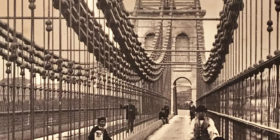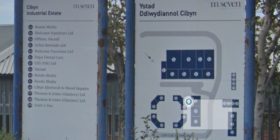Police voice concerns workers in North Wales could be exploited as lockdown restrictions are eased

Police have raised concerns that workers in North Wales could be exploited as lockdown restrictions are eased.
Although many shops and businesses in the region have been closed during the coronavirus pandemic, officers said modern slavery had still continued.
They said it was possible that workers used as slaves could have been moved from public-facing roles, such as car washes and nail bars, to more hidden sectors such as agriculture and food processing.
They are now encouraging people to be aware of the signs of exploitation and report any suspected cases to police.
Detective Sergeant Richard Sidney, from the Modern Day Slavery Unit, said: “Although many shops and businesses have been closed over the last few months, this does not mean that labour exploitation stopped with them.
“It is possible that victims have been moved around without their consent to different industries, potentially working in dangerous environments without appropriate training or protective equipment, just so their exploiters can continue to make a profit.
“As businesses begin to open again, we are urging the public to learn how to spot the signs of slavery and to be vigilant for it in local businesses such as takeaways, car washes and hotels.
“We are concerned that the economic downturn due to Covid-19 could lead to a greater amount of people being at risk of exploitation. Criminals will do anything to exploit the vulnerable and modern slavery is no exception.
“The public are our eyes and ears in the community and information, however small, is instrumental in our efforts to identify and prosecute offenders.
“That is why it is vital that the public are aware of the signs and feel confident to report it through the police, the Modern Slavery Helpline or anonymously through Crimestoppers.”
Labour exploitation explained:
Someone is in slavery if they are:
- Forced to work through mental or physical threat
- Owned or controlled by an ’employer’
- Dehumanised, treated as a commodity or bought and sold as ‘property’
- Physically constrained or have restrictions placed on his/her freedom
What does labour exploitation involve?
Labour abuse can include issues such as not being paid or being paid below minimum wage, lack of personal protective equipment (PPE), few or no breaks, the belittling of workers and long hours.
Forced labour involves control, force or coercion of an individual to perform work or services which the person has not offered themselves voluntarily.
Labour exploitation can cause serious harm to workers and they often experience restrictions on movement, debt-bondage, removal of identity documents, psychological manipulation and threats of violence.
Where does it happen?
Labour exploitation can happen anywhere and you may well have seen it without realising.
It is hidden in plain sight in our cities, towns and communities in places including, but not limited to: Takeaways, hotels, car washes, nail bars, private homes, brothels, farms, kitchens and factories.
Who does it happen to?
There is no typical victim of slavery. Victims can be men, women and children of all ages,but it is normally more prevalent amongst the most vulnerable, minorities or socially excluded groups.
Why do victims stay?
Victims often do not perceive themselves as being victims, or may be unwilling to seek help due to:
- Fear of retribution from their traffickers
- Fear and suspicion of the authorities, and a lack of awareness that these people are in a position to help
- Fear that their traffickers will accuse them of being complicit in their trafficked situation
- Toleration of their situation, as it is more favourable than their home circumstances
- Being in a relationship with their traffickers
- Fear of discrimination from their community and families
How can you spot the signs?
Below are signs that could indicate labour exploitation:
- Individuals may show signs of psychological or physical abuse. They might appear frightened, withdrawn or confused
- Workers may not have free movement and may always be accompanied
- Individuals often lack protective equipment or suitable clothing and have not been trained to safely fulfil the requirements of the role
- The person may not have access to their own documents, such as ID or their passport
- Individuals may not have a contract, may not be paid National Minimum Wage or not paid at all
- Workers are forced to stay in overcrowded accommodation provided by the employer.
- Individuals could live on site
- Workers could be transported to and from work, potentially with multiple people in one vehicle
- The person might not accept money or be afraid to accept payment
- Workers may work particularly long hours
Police have asked the public to be vigilant as businesses begin to reopen again and to know how to spot signs of potential labour exploitation.
If you see something suspicious, there are a number of ways to report it:
Police: Our online reporting tool, call 101 or 999 in an emergency
Crimestoppers: Online reporting tool, or call 0800 555 111
Modern Slavery Helpline: 08000 121 700 or report online
Spotted something? Got a story? Send a Facebook Message | A direct message on Twitter | Email news@north.wales






